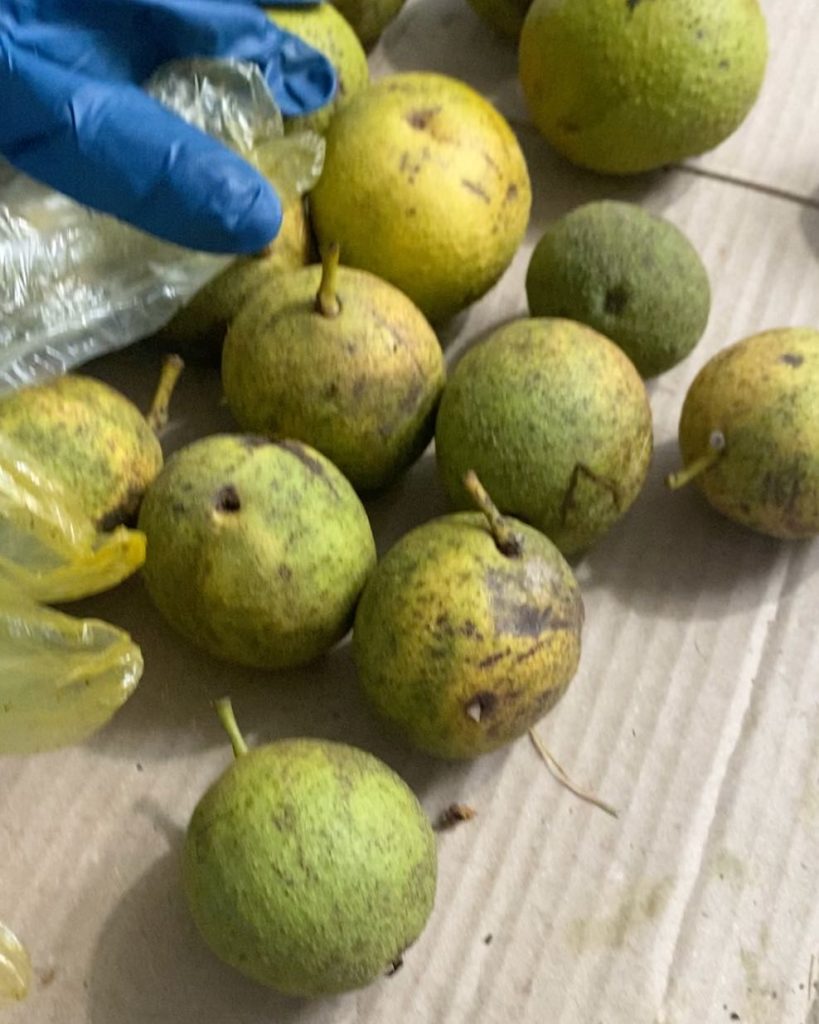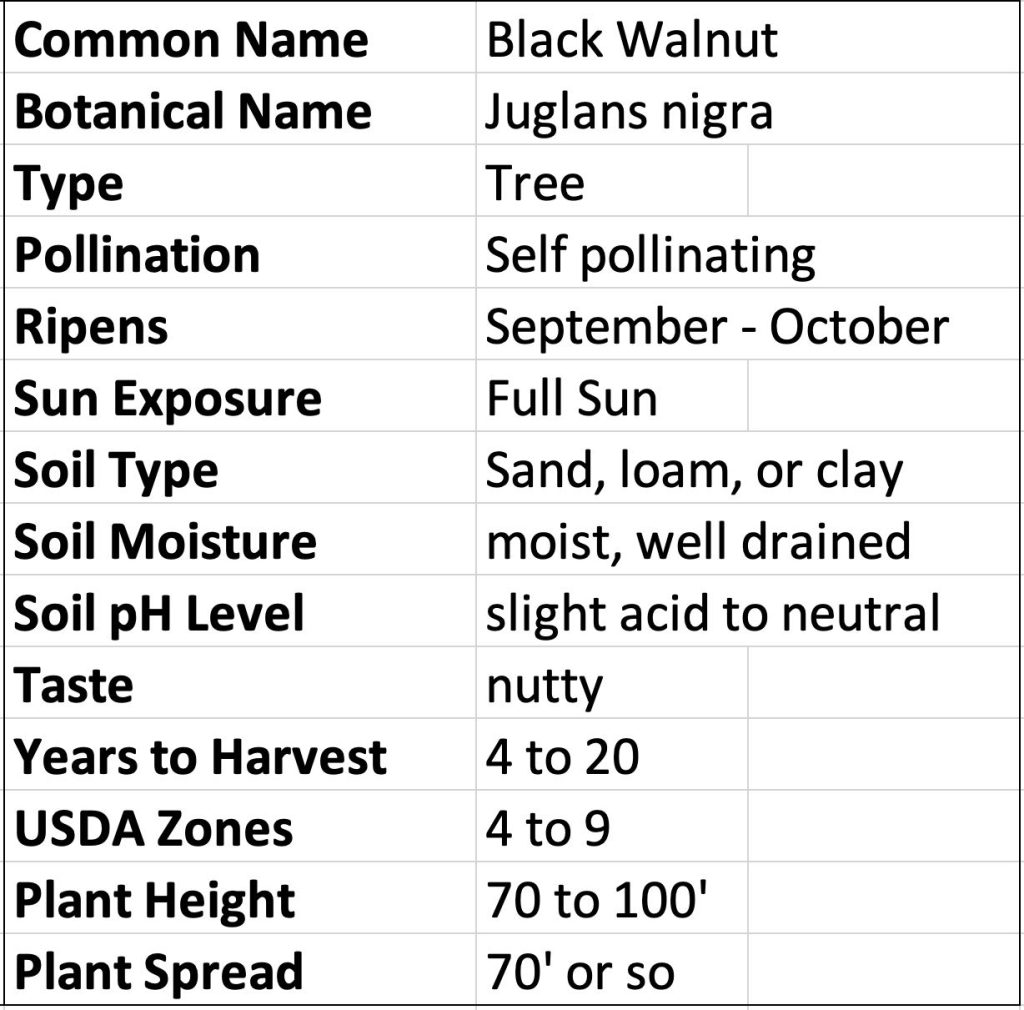
The black walnut is a very large nut tree native to eastern North America. The tree produces edible nuts that are said to taste better than other walnuts, but you have to work at it to get to the nut meat. The tree has a number of useful edible and medicinal benefits. Care needs to be taken when planting the trees because of juglone that can kill off other plants.
The seed of black walnut is delicious and in my opinion tastes better than English walnut. The biggest problem with the seed is actually getting at the meat. The seed is encased in a very hard shell that you have to break open with a nut cracker or a hammer.
Medicinally, black walnut has the following herbal actions: Alterative, Anodyne, anti-inflammatory, astringent, blood purifier, detergent, laxative, pectoral, vermifuge, leprosy, eczema.
The roots of the black walnut tree contain juglone, a toxic compound that can harm other plants sensitive to it. Thus, it is important to keep a significant distance between the black walnut and these susceptible plants. Here is a list of plants that are unaffected by juglone: maple species, Eastern red cedar, oak species, river birch, hickory, pawpaw, black cherry, sweetgum, yellow poplar, Eastern redbud, persimmon, arborvitae, forsythia, juniper, American holly, spicebush, elderberry, viburnum species, yarrow, wild ginger, aster species, coral bells, hosta species, sunflowers, onions, beets, carrots, parsnips, squash and melons, beans, and corn.


Be sure to check out our other great plants for sale at Great Escape Nursery.
THANK YOU FOR VISITING, WE LOOK FORWARD TO ANSWERING ANY QUESTIONS
Sorry, we do not ship plants. We will only be selling plants from our nurseries in Maryland and West Virginia. Pease see our “Contact Us” page for more information.